Filter by
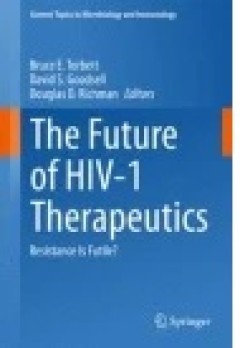
The Future of HIV-1 Therapeutics
This volume thoroughly covers HIV-1 antiretrovirals currently in clinical use, together with their advantages and limitations. HIV-1 inhibitor resistance is discussed in detail, and critical assessments as to what will be required of future antiretrovirals in order to halt viral replication, reduce viral resistance, and alter the state of viral latency are presented. Experts at the forefront of…
- Edition
- -
- ISBN/ISSN
- 978-3-319-18518-7
- Collation
- X, 254
- Series Title
- Current Topics in Microbiology and Immunology
- Call Number
- -
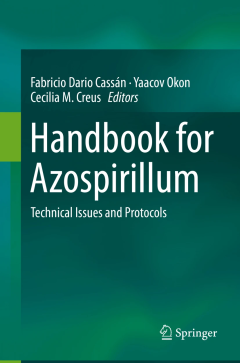
Handbook for Azospirillum:Technical Issues and Protocols
The functional analysis of plant-microbe interactions has re-emerged in the past 10 years due to spectacular advances in integrative study models. This book summarizes basic and technical information related to the plant growth promoting rhizobacteria (PGPR) belonging to the genus Azospirillum, considered to be one of the most representative PGPR last 40 years. We include exhaustive information…
- Edition
- -
- ISBN/ISSN
- 978-3-319-06541-0
- Collation
- XVII, 514
- Series Title
- -
- Call Number
- 616.9
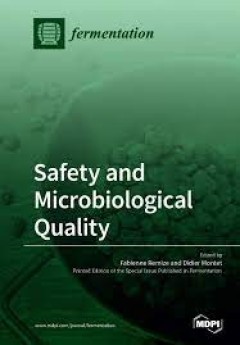
Safety and Microbiological Quality
The safety and microbiological quality of fermented foods covers complementary aspects of such products. Food fermentation is primary intended to improve food preservation, thereby modifying food properties. However, the management of chemical and microbiological hazards is a leading aspect for innovative processing in this domain. Similarly, microbiological quality in fermented foods is of pec…
- Edition
- -
- ISBN/ISSN
- -
- Collation
- -
- Series Title
- -
- Call Number
- 572 SAF

How to Overcome the Antibiotic Crisis: Facts, Challenges, Technologies and Fu…
This volume focuses on antibiotics research, a field of topical significance for human health due to the worrying increase of nosocomial infections caused by multi-resistant bacteria. It covers several basic aspects, such as the evolution of antibiotic resistance and the influence of antibiotics on the gut microbiota, and addresses the search for novel pathogenicity blockers as well as historic…
- Edition
- -
- ISBN/ISSN
- 978-3-319-49282-7
- Collation
- XII, 496
- Series Title
- -
- Call Number
- 610 HOW
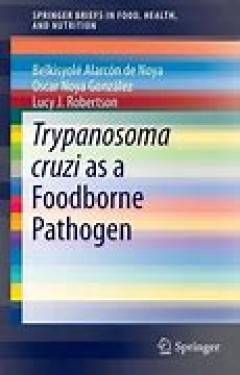
Trypanosoma cruzi as a Foodborne Pathogen
This Brief provides a comprehensive overview of Trypanosoma cruzi, a parasite that is traditionally considered as exclusively vectorborne, but can be foodborne, and may lead to outbreaks of Chagas disease in consumers. The characteristics of Trypanosoma cruzi and the clinical effects of the disease are covered, including documented outbreaks, regional patterns, and epidemiology. The various tra…
- Edition
- -
- ISBN/ISSN
- 978-3-319-23410-6
- Collation
- 5 illustrations in colour
- Series Title
- -
- Call Number
- -

Extremophiles: Applications in Nanotechnology
This book discusses the extremophiles explored for biosynthesis of nanoparticles. Nanotechnology is a widely emerging field involving interdisciplinary subjects such as biology, physics, chemistry and medicine. A wide variety of microorganisms, such as bacteria, fungi and algae are employed as biological agents for the synthesis of nanoparticles. Novel routes by which extremophiles can be emplo…
- Edition
- -
- ISBN/ISSN
- 978-3-319-45215-9
- Collation
- 14 b/w illustrations, 34 illustrations in colour
- Series Title
- -
- Call Number
- -
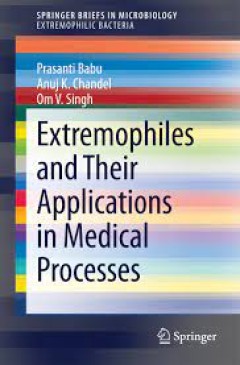
Extremophiles and Their Applications in Medical Processes
Extremophiles are known to thrive under harsh environmental conditions. Many extremophilic bio-products are already used as life-saving drugs. Recent technological advancements of systems biology have opened the door to explore these organisms anew as sources of products that might prove useful in clinical, environmental and drug development.
- Edition
- -
- ISBN/ISSN
- 978-3-319-12808-5
- Collation
- 8 illustrations in colour
- Series Title
- -
- Call Number
- -

Advances in Microbiology, Infectious Diseases and Public Health: Volume 4
The Advances in Microbiology, Infectious Diseases and Public Health Series will provide microbiologists, hygienists, epidemiologists and infectious diseases specialists with well-chosen contributed volumes containing updated information in the areas of basic and applied microbiology involving relevant issues for public health, including bacterial, fungal and parasitic infections, zoonoses and a…
- Edition
- Ed. 1
- ISBN/ISSN
- 978-3-319-43207-6
- Collation
- V, 125
- Series Title
- Advances in Experimental Medicine and Biology
- Call Number
- 576 ADV a

Advances in Microbiology, Infectious Diseases and Public Health: Volume 2
This Series will provide microbiologists, hygienists, epidemiologists and infectious diseases specialists with well-chosen contributed volumes containing updated information in the areas of basic and applied microbiology involving relevant issues for public health, including bacterial, fungal and parasitic infections, zoonoses and anthropozoonoses, environmental and food microbiology. The in…
- Edition
- Ed. 1
- ISBN/ISSN
- 978-3-319-27935-0
- Collation
- VI, 134
- Series Title
- Advances in Experimental Medicine and Biology
- Call Number
- 576 ADV a

Advances in Microbiology, Infectious Diseases and Public Health: Volume 1
The Series will provide microbiologists, hygienists, epidemiologists and infectious diseases specialists with well-chosen contributed volumes containing updated information in the areas of basic and applied microbiology involving relevant issues for public health, including bacterial, fungal and parasitic infections, zoonosis and anthropozoonosis, environmental and food microbiology. The inc…
- Edition
- Ed. 1
- ISBN/ISSN
- 978-3-319-26320-5
- Collation
- VI, 124
- Series Title
- Advances in Experimental Medicine and Biology
- Call Number
- 576 ADV a
 Computer Science, Information & General Works
Computer Science, Information & General Works  Philosophy & Psychology
Philosophy & Psychology  Religion
Religion  Social Sciences
Social Sciences  Language
Language  Pure Science
Pure Science  Applied Sciences
Applied Sciences  Art & Recreation
Art & Recreation  Literature
Literature  History & Geography
History & Geography